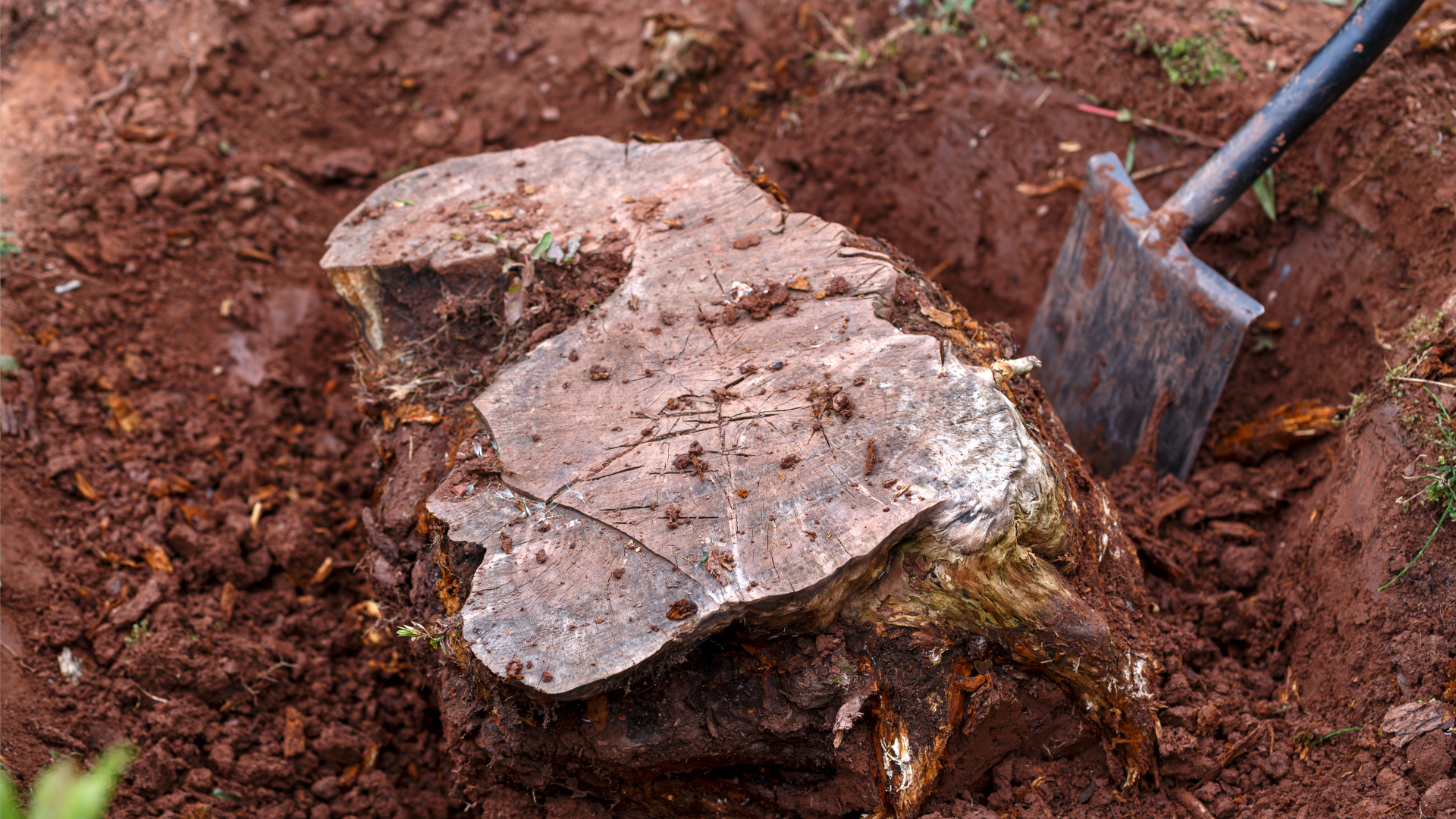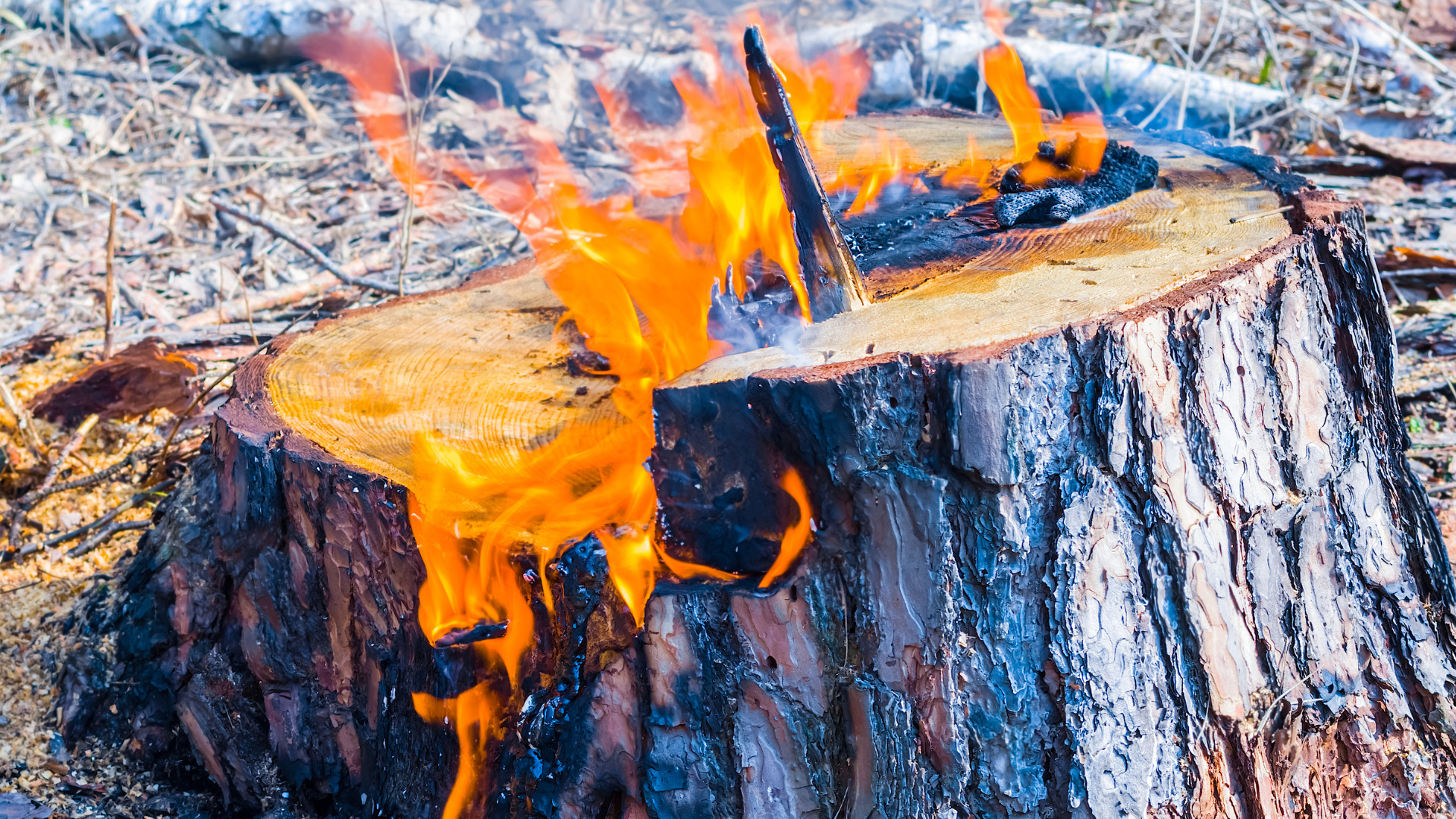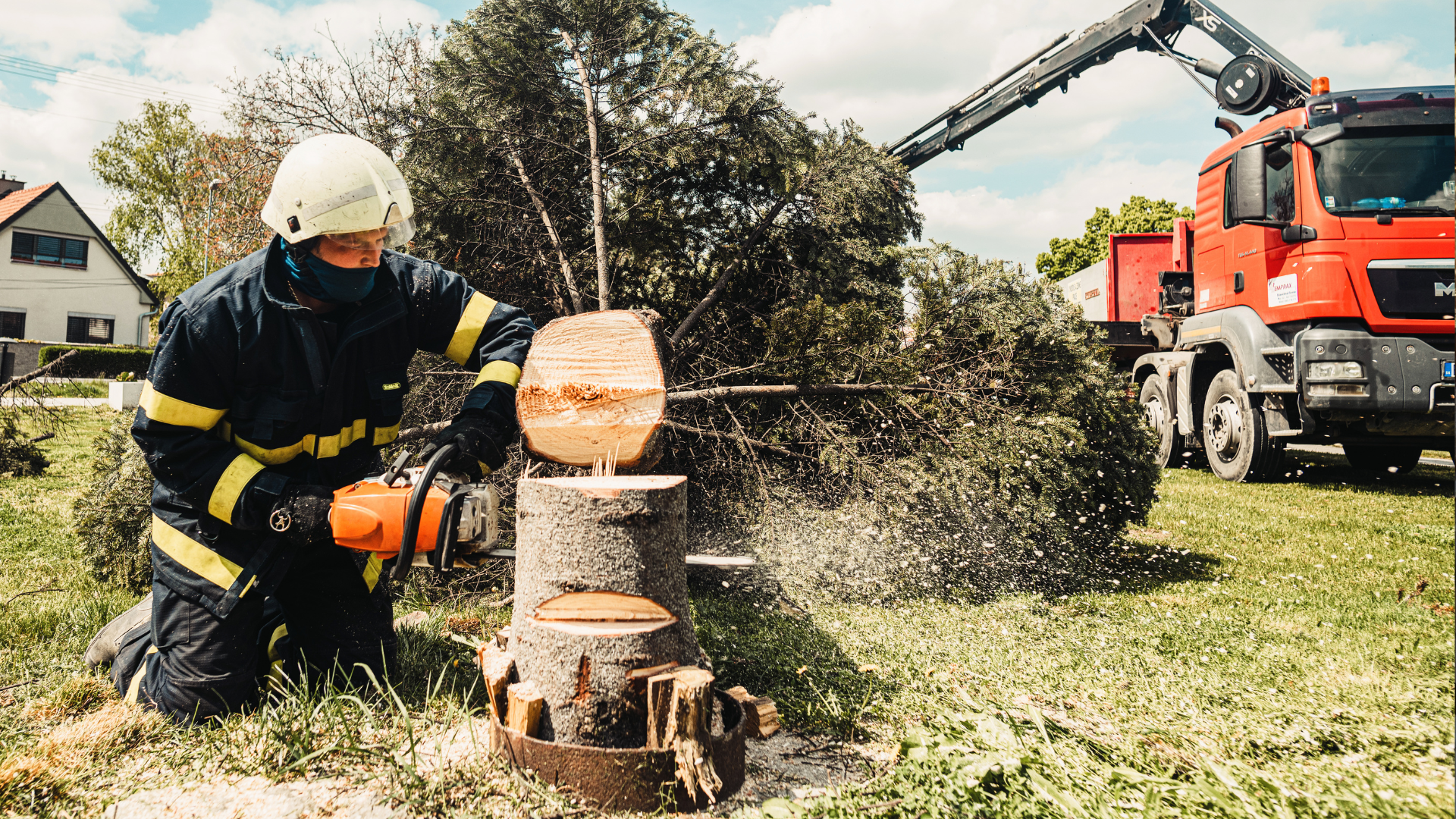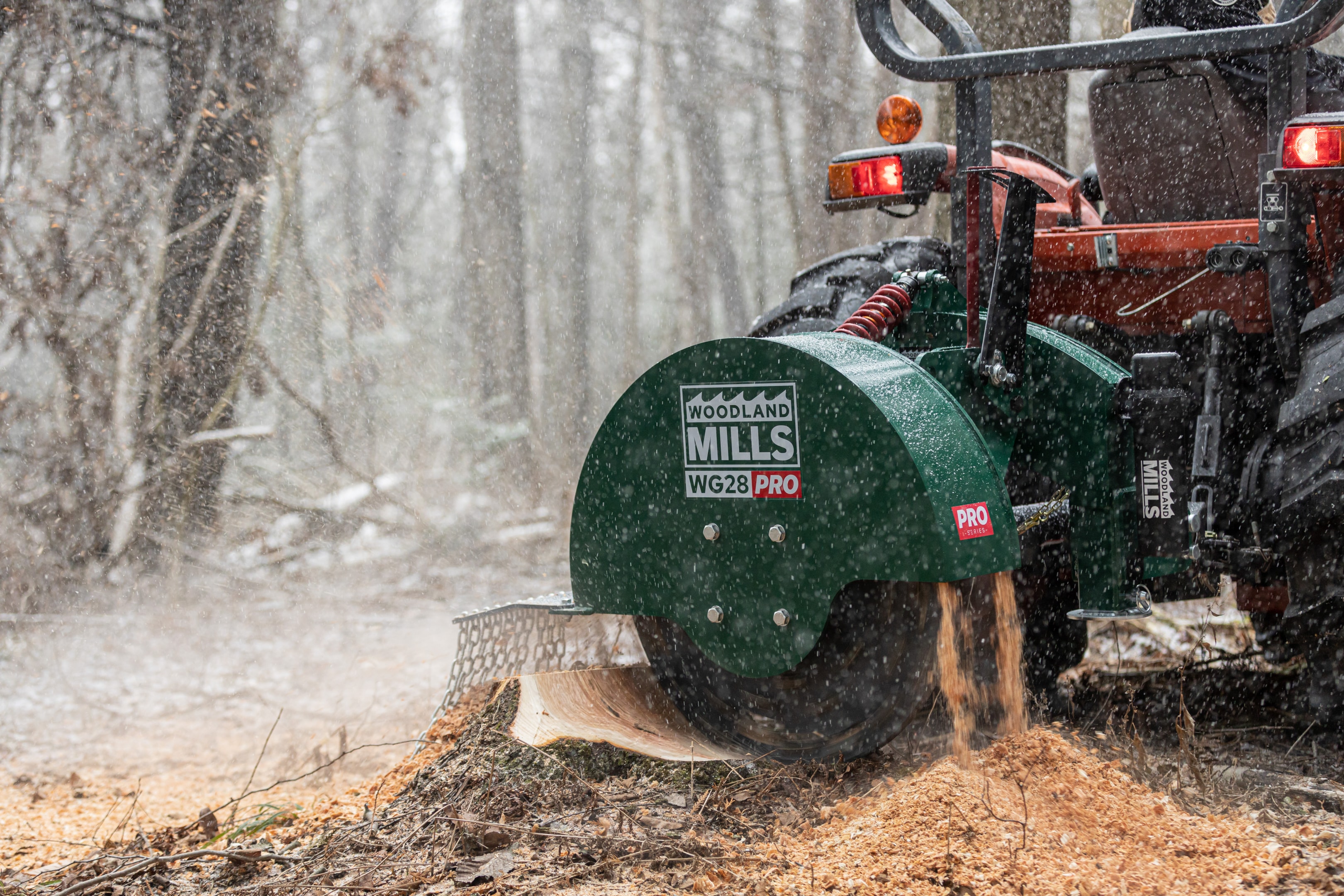A Guide to Tree Stump Removal
Need to learn how to remove a pine tree stump? Here's how!
When you're having trees removed, the stump can be a troublesome element to get rid of, but it doesn't have to be.
Whether you're toppling pine trees in your rural acreage or you're cleaning up a neglected woodlot, there's lots of reasons why you may want to deal with stumps. Whether you own a stump grinder or want to pay a professional to deal with all the roots, there are solutions to this problem.
Thankfully there are a few options for dealing with them.
Stump Troubles
So you have a problematic stump, or multiple stumps, taking up space on your property. While it can be tricky to remove trees, the job isn't over yet if you still have a disruptive stump sticking out of the ground. Stumps can cause problems for a number of reasons:
-
-
They can be tough navigate around
-
They can prevent the construction of new structures
-
They can be tripping hazards
-
They're distracting and are visually unpleasant
-
If you're waiting for a natural decay it can take between five to ten or more years for a pine stump. There's things you can do to speed along the decay process but large stumps may take even longer to remove.
Tree stumps also have root systems buried inches deep underground. This makes total removal much more difficult, since you can remove the top of the stump but still be left with the tripping hazard of exposed roots.
Stump Clearing Solutions
When it comes to stump removal there are a few tried and true methods you should consider. Simple solutions include:

Hand Removal
Break out a shovel and get ready to start digging. This is the most traditional, albeit laborious, form of stump removal.
Follow these steps and you may be able to remove the stump by hand:
-
-
Step 1: Use a chainsaw or reciprocating saw to cut down the stump until it's as close to ground level as you can get
-
Step 2: Start digging around the stump, digging a wide enough perimeter that you're going around the root ball.
-
Step 3: Cut through any extending roots until you get underneath the core root ball
-
Step 4: Get your shovel underneath the root ball. If you see troublesome roots still gripping into the dirt then cut them off with the end of your shovel. Do this until the stump is prized from the ground
-
This is the most time consuming and labor intensive method of stump removal. Don't forget to wear eye protection in case small pieces of dirt or rock go flying when you attempt to extract the stump.

The Chemical Method
Applying chemicals to the stump can help increase decomposition and speed up the natural decay of the stump. These solutions are most effective with older, already partially decayed stumps and aren't as effective for healthy stumps from recently felled trees.
Potassium Nitrate and epsom salt are a common compounds used in chemical removal, although you can buy a few different types. Go to your local hardware store and ask for chemical stump remover and they'll know what you're talking about.
Because these chemicals leech into the surface of the wood to help them rot from the inside, it may be beneficial to drill holes and pour the chemical treatment into them so it seeps deeper into the stump.
Some products also recommend wrapping a plastic tarp around the tree stump to speed up the process. Tightly cover the stump and leave it for the recommended amount of time specified on the product instructions before removing the tarp.
Now just grind the stump using a hand tool like a shovel now that it's soft and decayed. While this method requires the least amount of labor, it may still take a few months before your stump is able to be removed. It's also unclear if this is the best method for removing healthy tree stumps.

Burning the Stump
Some people opt to burn the tree stump, using an accelerant, to try and rapidly get rid of them.
Fire can be an unreliable factor, and there are many videos online of people repeatedly trying to set their stumps on fire but they just continue to persist. They'll drill holes in a stump and pour gasoline inside and then light it up.
This method has a number of safety issues, because:
-
-
Gasoline or other accelerants could get on your hands and cause fire to spread
-
Fire could spread to grass or other nearby trees
-
With the fire inside the stump it can be difficult to put out in case of an emergency
-
While some people swear by this method, others disagree with its effectiveness. While it may make for a very eye-catching social media video, it's arguable there are other, more effective means of tree stump removal.

Tree or Lawn Care Companies
Paying a tree service company to come in and deal with your stumps is definitely a tried-and-true method. Arborists and tree care professionals are trained in how to best safely remove trees from peoples' properties.
Tree care professionals have:
-
-
Heavy duty tools
-
Knowledge on how to remove trees safely and easily
-
The manpower to get it done
-
The downside with doing this is that you're paying to have it done for you. Tree services often charge by the hour and it can be hard to tell whether they're doing an effective job quickly or dallying.
Some lawn care companies also offer stump removal as well as basic landscaping services. Oftentimes these businesses will charge per inch for stump removed, or a flat fee per stump. What's worth noting is that tree stumps extend underground, meaning there are more inches to grind that you're paying for than it may appear on the surface.
Also not every tree service offers stump removal. Some companies will deal with the tree trunk and chip the branches but leave you to deal with the stump.
If you're interested in this option, ask about the full range of services from your tree care company beforehand, as well as how much it will cost.

Stump Grinder Ownership
Stump grinders are one of the most effective methods for tree stump removal, quickly turning your stump into a hole in the ground and leaving you with a pile of organic mulch that will decay on its own.
Whether you've got a pine stump in your backyard or a woodlot with a number of trees that need to be removed, just hook up your stump grinder and within minutes each stump will be a satisfying hole in the ground that can be easily filled.
And because stump grinders take only minutes to remove pesky stumps, you can be getting other tasks done on your property that much quicker.
Most stump grinders for residential use are PTO-driven, meaning you will need a tractor with a PTO shaft. To operate a stump grinder:
-
-
Line up the back of your tractor and the stump grinder with your stump
-
Engage the PTO and get the grinding wheel spinning
-
Draw your stump grinder through the stump, taking off a few inches at a time
-
Continue this process, lowering your stump grinder as you go, until your stump is fully removed
-
The benefit of this process is that even large stumps can be easily and quickly removed, and because the machine goes inches deep underground, it also gets rid of troublesome root systems including the tap root, which can be difficult to remove via other methods.
But you do need to own a PTO compatible tractor. While there are models which don't require a tractor, these do require more manual labor to use.
Though you can't argue with the results, once your tree stumps are gone and you have a consistent, clean lawn that you can easily mow or landscape.
SHOP SAWMILLS
HM122
The HM122 portable sawmill, packaged with the rugged Bushlander® trailer for complete mobility, loaded with features like the RapidChange® blade system, auto lube and more.
HM126
The sawyer favourite HM126 portable sawmill, packaged with the Woodlander® trailer for complete mobility, ideal operation height and easy storage.
HM130MAX®
The wide capacity HM130MAX® portable sawmill, packaged with the Woodlander® trailer for complete mobility, comfortable operation height and easy storage.
HM136MAX™
Our widest-capacity portable sawmill, the HM136MAX™, packaged with the Woodlander® trailer to make it easy to take anywhere and easy to store.
Join the Woodland Mills Community Facebook group. Search advice and insights from over 65,000 knowledgeable, supportive members.
- Pre-purchase considerations
- Sawmill set-up support
- Project inspiration photos and videos
- Community troubleshooting support
